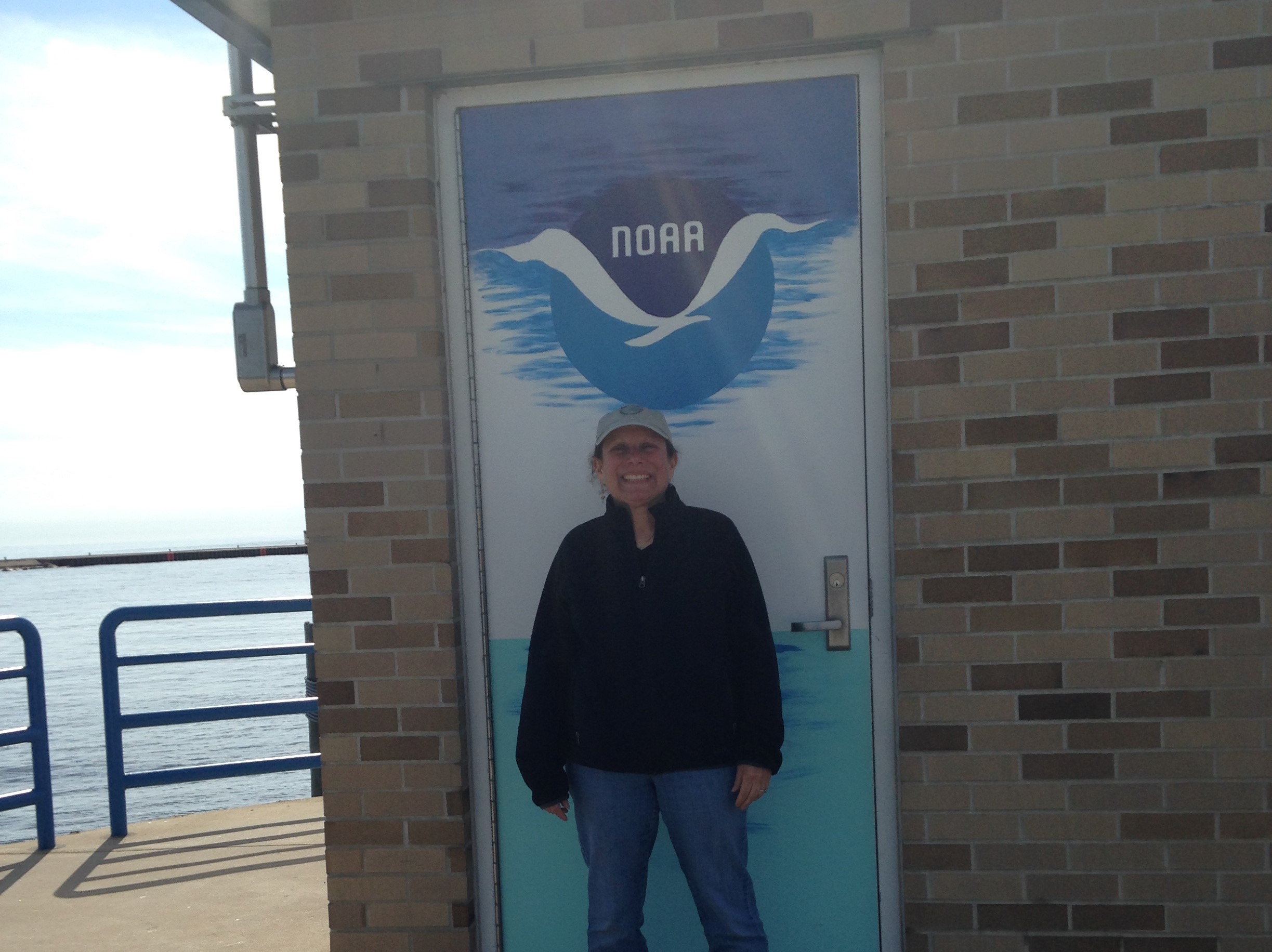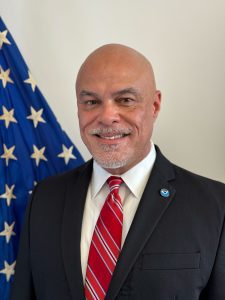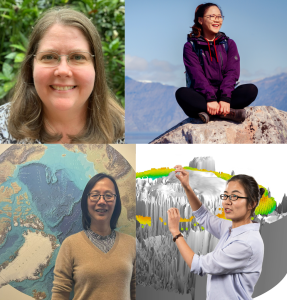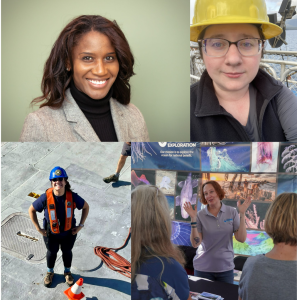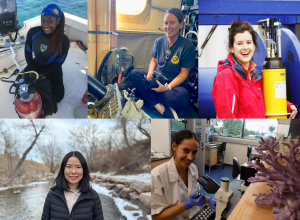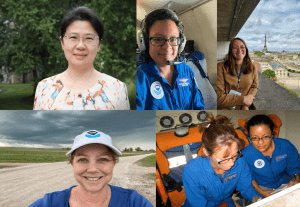Nancy Beller-Simms leads the newly-formed Adaptation Sciences Program at NOAA’s Climate Program Office, Climate and Societal Interactions Division.
What drew you to your current career or field?
After college, I worked several jobs and then backpacked through Europe and Israel. One experience in particular changed the course of my life and influenced my career choice – in a millisecond. I was on a bus traveling through the Negev Desert in Israel where the scenery was brown and barren for miles. Abruptly everything changed. There was an actual line in the sand where the desert floor was brown on one side of the line and covered with green crops on the other side. The Israelis research and apply methods to bring water to farming, even in the middle of the desert, and we were passing acres of crops nurtured by drip irrigation.
After this experience, the direction for my future was solidified, focusing on water resources. My graduate research (Master’s thesis and PhD dissertation) focused on aspects of water resources, from predicting water demand to modeling community preparations for El Niño–Southern Oscillation (ENSO)-related activities. I currently work on issues related to climate adaptation, specifically concentrating on water resources.
What challenges have you faced as a woman in your career/field, or in general, and how have you overcome them?
It began early – when I successfully passed an exam to get into an advanced math track in middle school, yet was not given the course in my schedule. When my parents and I questioned it, the principal asked me if I really wanted to take the place of a boy who would need that training more than I would in the future. In those days, you complied.
I have hit similar walls throughout my career, but in order to proceed you have to bury yourself in work that has meaning to you, build confidence in yourself, and trust your own instincts. You also have to define what success is to you and not to professional or societal norms. Finally, I found what has been most important to me is making a difference in people’s lives through advancing the use of science in their own decision-making.
Do you have a favorite moment or accomplishment in your career?
There are a few. One happened last week. A Lapenta intern I had mentored applied to a graduate program, and the professors contacted me for a recommendation. They began by discussing how impressed they were with her knowledge of the social and physical systems connected with providing water services in a changing climate. This intern did not have a background in water resources when she came to work with us for the summer. She worked hard and embraced her water-related project. It showed how much of an influence my colleagues and I had on her then, now, and for the future.
Another memory is a project I had worked on with long-time colleagues in the Environmental Protection Agency as well as several water foundations and NGOs. We know our work with small and medium sized communities’ water resource-focused agencies is both wanted and needed. Staff members from these small organizations need more nurturing in their understanding and use of (NOAA) scientific information. Through years of working together, we had conducted studies on their needs and created tools and informational videos in response to our findings. In the last year and a half we designed two webinar series to bring this information more directly to the public. We were excited when over 2,100 individuals registered for our first webinar series on “Our Changing Precipitation” (we were used to 100-200 registrants). This was dwarfed by our next series entitled “Showcasing Leading Practices in Climate Adaptation: Experiences from the Water Sector to Empower Other Sectors and Communities” with over 5,000 individuals who registered, primarily from small communities. (Shameless plug: check out the summaries and recordings here.) We are making a difference.
What gives you hope, either with regard to science, your field in NOAA, or in general?
As a geographer, my training was purposely interdisciplinary in structure and included courses in physical, social and economic sciences. When I first started at NOAA, interns came with focused knowledge primarily in their own academic field of study. More recently, working with a number of interns and fellows has become more exciting as students are becoming more interdisciplinary in training and are more appreciative of other disciplines and fields of study. They are taking a more holistic approach to preparing for their future work and even allowing life experiences to guide them.
For example, one intern with whom I worked was a math major who had not thought much about the human aspects of modeling. His grandparents had recently survived a devastating flood in Alabama. Given the freedom to research a topic that was not necessarily math oriented, he worked towards a better understanding of flood forecasting. As he became more absorbed in this project, he spoke with NOAA regional forecast offices, modelers and local television station meteorologists to better understand what led to the flooding of his grandparents home and what to potentially expect in the future.
In summary, we are seeing a more personalized, relevant, and interdisciplinary approach with our more recent fellows and interns, and this gives me hope for the next generation of NOAA scientists.
